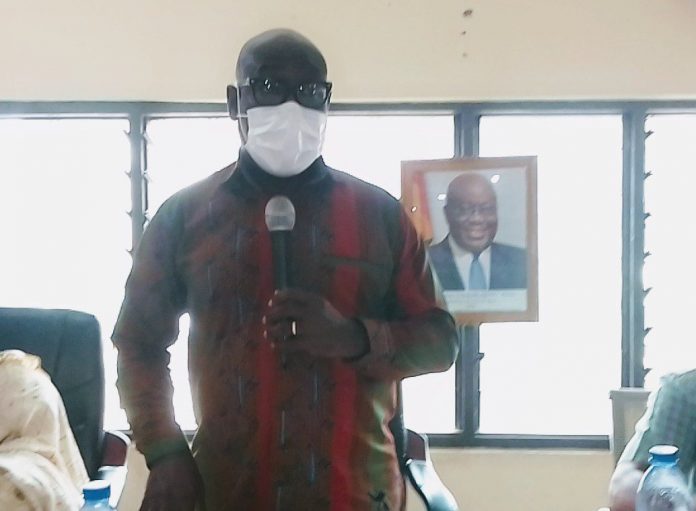The Municipal Chief Executive of Mfantsiman Municipal Assembly, Kenneth Essuman has thrown his weight behind calls for the enactment of a law that will allow alternative sentencing of petty offenders in Ghana.
According to Mr. Essuman, instead of the current system keeping petty offenders in walled prisons, there should be a law to get value from such offenders by offering community services rather than being liabilities on the state.
He also indicated that subjecing people who violate bye-laws to community service will be more deterring.
“Imagine a child seeing his/her a parent sweeping the streets or desilting gutters for breaking a bye-law, he will feel ashamed and make sure he/she will do the right things when they grow up.”
“We need to reform the laws. This will also make it easier for people to report wrongdoers to the assemblies since there wouldn’t be any fear of possibly throwing a neighbor into jail but rather to help the assembly to clean the community for flouting the laws. So we stand with Crime Check’s call for reviewing the laws,” the MCE for Mfantsiman said.
The community service or non-custodial sentencing, when promogulated into law, would provide alternative sentencing such as probation, parole and community service into the country’s Criminal Justice System.
These alternatives to custodial sentence which is being pushed by the Crime Check Foundation and Open Society Initiative for West Africa (OSIWA) through a sensitisation project, Decriminalizing Vagrancy Laws And Advocacy (DVLA) has a great potential to decongest the country’s inhumane prisons and significantly reduce the financial burden in the management of the prison system in Ghana.
In August 2020, Vice President Mahamudu Bawumia while speaking at a ceremony at the Ghana Prisons Service, after years of many calls, announced that government completed drafting the Non-Custodial Sentencing Bill but Ghana is yet to see it being passed into law.
Bill To Be Passed Before End Of 8th Parliament
Later this year, May 2021, the Attorney General, Godfred Dame is confident government will enact the non-custodial sentencing law before the current Parliament expires.Ghanareport quoted Mr Dame saying “we first have to seek policy approval for the enactment of a law and when the approval is given, we have to come back to draft it. After drafting, we have to submit it for stakeholder consultation, and that process is very long. It is time-consuming and resource-intensive as well.”
“After the stakeholder consultation, we will submit it to the cabinet.Cabinet will also consider the bill and changes will be made before the Attorney General forwards it to Parliament for consideration and passage. We are therefore working on the passage of a Community Sentencing law,” he was quoted to have said.
Concerns From Vagrants
Meanwhile, some vagrants in the Mfatsiman Municipal Assembly has called on the assembly to make the bye-laws available to traditional authorities. They stated that this will help equip the citizens on such laws to reduce crime in the area.
The the over 100 participants at the Decriminalizing Vagrancy Laws Advocacy workshop were made up of traders’ unions, waste collectors, petty traders, truck pushers, landlords, persons with disabilities, transport unions among others in Mankesim, Saltpond and their adjoining communities.
The project was initiated as a result of the harsh District Assemblies’ bye-laws, which usually bite poor people harder by sending them to prison after failing to pay court fines.
Meanwhile, the Crime Check Foundation throughout the sensitisation workshop in municipalities in the Greater Accra, Ashanti and Central regions admonished the participants to desist from challenging the authority of the assemblies by deliberately flouting its bye-laws.
Project Timeline
The one-year project is being rolled out in 12 metropolitan assemblies in three regions: Greater Accra, Ashanti, and Central.
It is sensitizing 1200 vagrants about their rights and responsibilities to prevent any misunderstandings with the assemblies.
Monitoring and Evaluation
To monitor the progress and effectiveness of the Decriminalizing Vagrancy Laws and Advocacy project, a contact centre has been created after the sensitization to address the concerns of vagrants at the partnering organization, Crime Check Foundation.
The project will run from May 2021 to May 2022.
By Sefakor Fekpe
]]>












